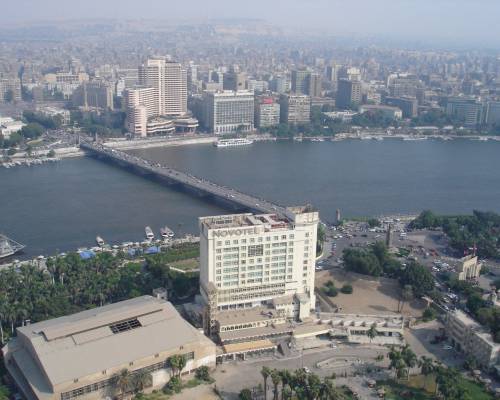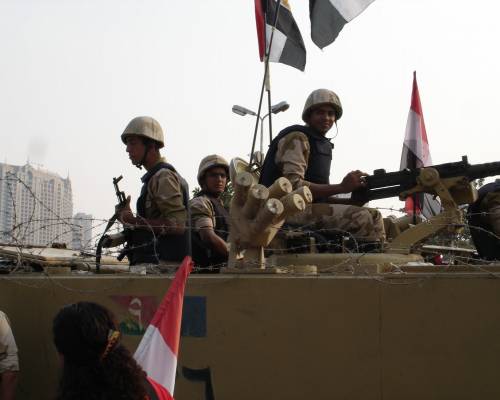Egypt - what next? by RPS's intelligence analyst
RPS's intelligence analyst looks at the situation in Egypt and asks how has it come to this and what is next?
The situation in Egypt continues to be highly volatile.
On the third anniversary of the Arab Spring, clashes in Cairo over the weekend of 25-26 January saw almost 50 civilians killed in conflict between protestors demanding the reinstatement of former President Mohamed Morsi, and security forces.
On 28 January, General Mohamed el-Saeed of the Egyptian Police Force was assassinated at his Giza residence, the latest victim of an insurgency campaign claimed by Ansar Bayt al-Maqdis, a jihadist group opposing the security crackdown on Islamists and the Muslim Brotherhood. This group also claimed the downing of a military helicopter through a man-portable air defence system, or manpad, in the Sinai Peninsula on the same day.
Following the referendum on a new constitution that easily passed two weeks ago, Morsi supporters have vowed to step up their protests, which in turn will likely see an even greater crackdown as the interim government attempts to assert its authority. Morsi himself is currently on trial for the alleged murder of prison guards in an escape attempt made whilst in jail during the 2011 uprising. On further charges of incitement to murder and collusion to commit terrorist acts, for which he is charged as a member of the now-proscribed Muslim Brotherhood, he is yet to be tried. Repression of the Brotherhood and associated Anti-Coup Alliance movement continues.
The Supreme Council of the Armed Forces (Scaf) have announced that Field Marshal Abdul Fattah al-Sisi, chief of the military, will run for the Presidency in Egypt’s next election, due to take place by the end of April. Not only is al-Sisi expected to win any contest, given the dearth of serious opposition, but he was a leader in the overthrow of Morsi and is something of a popular hero among the anti-Morsi factions in Egypt.
Al-Sisi was personally responsible for giving Morsi the August 2013 ultimatum to resign, and led the subsequent moves to suspend the constitution and establish an interim government. While the clashes mentioed above took place, thousands turned out to support him at a Cairo rally. Whilst by no means commanding unitary support he is viewed as being able to bring security and stability back to Egypt – at least by those currently in power.
The fates of these two figures, Morsi and al-Sisi, will influence Egypt’s future – and perhaps eventual – path. While al-Sisi is a revolutionary hero to those that support him, to his detractors he is a possible Hosni Mubarak Mark II: a military hardliner content to oversee a regime rife with torture and oppression of dissidents.
That Egypt should have traversed the three years since the toppling of one military ‘strongman’ only to find itself with another seems somewhat inconceivable. While the government will point to the 98% ‘Yes’ vote as an endorsement of their constitution, the 38% turnout is a reminder that Morsi supporters and Islamists boycotted the polls entirely. This hardly seems to be a majority.
Mansour’s interim government is not making life easier. Instead of entering dialogue with the Muslim Brotherhood or urging reconciliation, the blanket ban as a ‘terrorist group’ could never do anything other than incite further hatred and opposition, both in thought and deed.
So what next?
The upshot of all of this is that Egypt, and Cairo in particular, remains divided and on a knife-edge. There appears to be no easy solution. With neither the Muslim Brotherhood nor the army willing to capitulate, the cycle of violence has the possibility to continue indefinitely, with the subsequent risks to tourists and business becoming inherent.
While the sides are primarily focused on each other, the risk exists that either by accident or design foreigners will become involved. The numerous sexual assaults in Tahrir Square of the past loom large in the mind here.
Moreover, Ansar Bayt al-Maqdis, through two recent car bombs, have demonstrated a capability to act inside Cairo. While like the Brotherhood they do not appear to wish civilian casualties, the longer the military crackdown continues the greater the likelihood of indiscriminate attacks becomes.
There will come a tipping point where innocent lives become only secondary to ‘the cause’, and on that day Cairo may sink into a conflict from which there is no turning back.
RPS would like to acknowledge the use of the following for information sourced within this article with thanks:
“Egypt’s military rulers face heightened threat from shadowy militant group” by Kristen Chick, Christian Science Monitor, 2014
http://www.csmonitor.com/World/Security-Watch/2014/0128/Egypt-s-military-rulers-face-heightened-threat-from-shadowy-militant-group-video
“Aide to Egypt’s interior minister killed; ousted president Morsi appears in court” by Erin Cunningham, The Washington Post, 2014
http://www.washingtonpost.com/world/middle_east/aide-to-interior-minister-killed-ousted-egyptian-president-morsi-appears-in-court/2014/01/28/2773fbfe-8816-11e3-a5bd-844629433ba3_story.html
“Egypt army backs Sisi as Presidential candidate” by Orla Guerin, BBC News, 2014: http://www.bbc.co.uk/news/world-middle-east-25917452
“Egypt Air Force helicopter downing a major escalation” by Jonathan Marcus, BBC News, 2014: http://www.bbc.co.uk/news/world-middle-east-25915607
“In Egypt, a nation voted Yes to military rule and Yes to moving forwards” by Bel Trew, New Statesman, 2014
http://www.newstatesman.com/2014/01/egypt-nation-voted-yes-military-rule-and-yes-moving-forwards
Photos: RPS in Cairo looking over Qasr al-Nil Bridge towards Tahrir Square and Armed Forces Day 6 Oct 13



